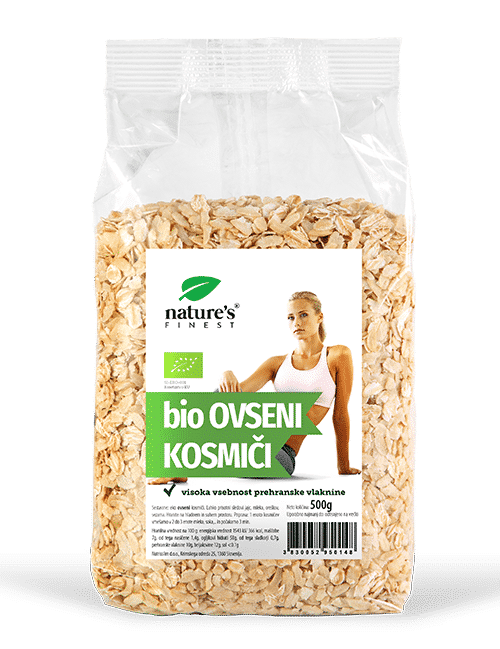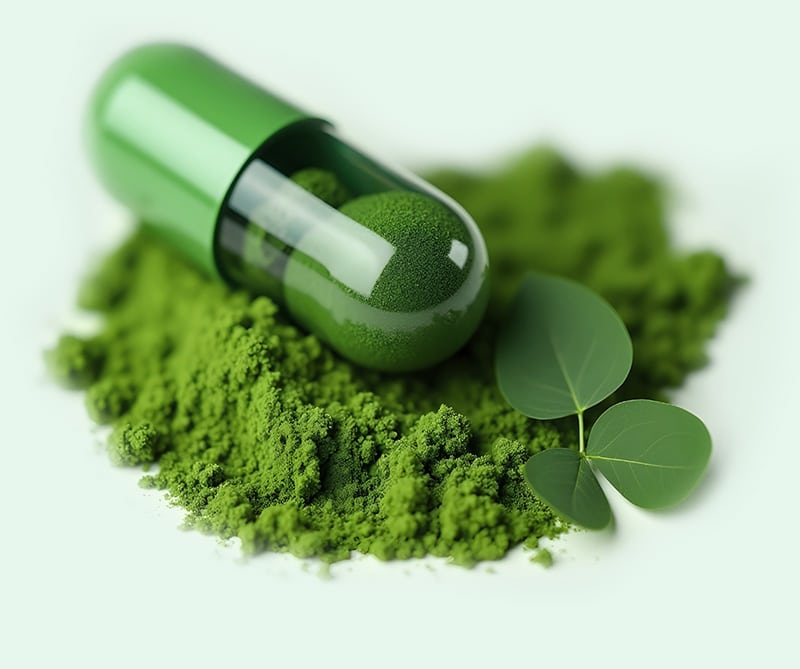Food that lowers cholesterol
Food that lowers cholesterol
High cholesterol levels are a major factor in the development of cardiovascular diseases, which affects three times as many lives as breast cancer and twice as many as lung cancer. It is estimated that 70 percent of Slovenians, between the ages of 25 and 64, have at least a slightly elevated bad cholesterol levels. This fat-like substance is necessary for our health, as it plays a key role in the production of certain hormones, vitamins, bile acids and other substances, but when levels are higher it harms the body and causes cardiovascular disease, known as the leading cause of death in the world.
There are two types of cholesterol: bad LDL cholesterol and good HDL cholesterol. LDL is a harmful cholesterol for our body, which can begin to accumulate on the walls of blood vessels and may lead to their calcification, and poses a risk of cardiovascular disease such as angina pectoris, heart attack or stroke. Another type of cholesterol is HDL cholesterol, which is good cholesterol because its job is to remove bad cholesterol from the arteries.
Exercise and proper nutrition are the key to lowering cholesterol
In addition to exercise, diet plays a key role in maintaining cholesterol levels. Experts at The New England Journal of Medicine claim that proper nutrition can lower cholesterol levels by 20 percent in just three months.
LDL cholesterol can be lowered with the help of certain types of foods. These are foods rich in sterols and stanols. Eating foods that contain sterols and stanols is the easiest way to lower the bad LDL cholesterol and reduce the risk of cardiovascular disease. Sterols and stanols occur naturally, in small amounts, in many grains, vegetables, fruits, legumes, nuts, and seeds. Because they have strong cholesterol-lowering effects, manufacturers have started adding them to food.
Stanols and sterols are found in margarine, orange juice, oat flakes etc. Molecularly, sterols and stanols are very similar to cholesterol. When they travel through the digestive system, they prevent bad cholesterol from being absorbed into the bloodstream. Thus, cholesterol does not stick to the walls of blood vessels, but is excreted as waste material.
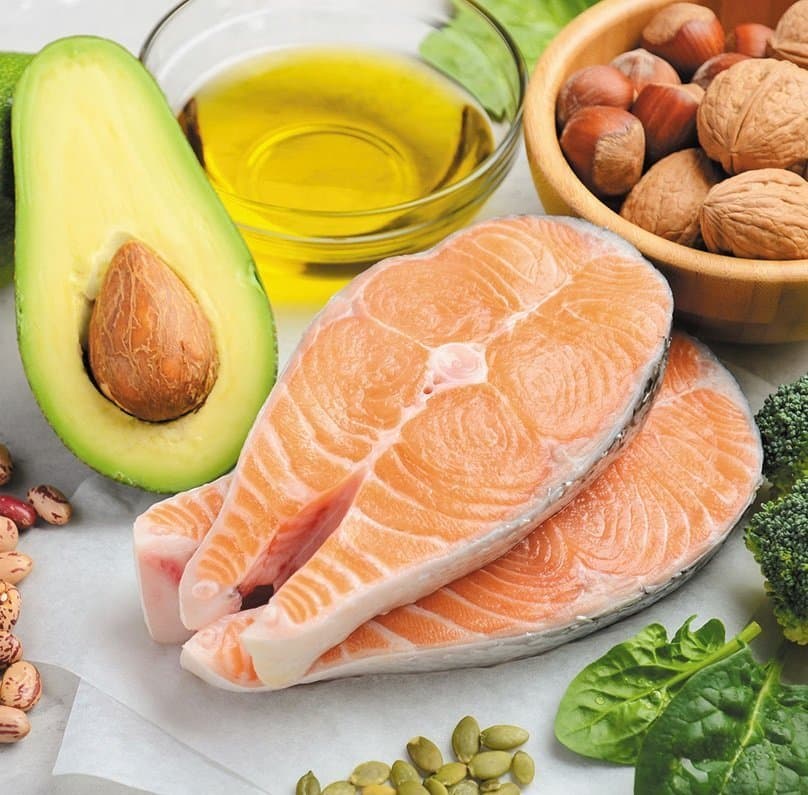
Similarly to sterols, dietary fibres prevent the entering of bad LDL cholesterol into the bloodstream. Foods such as beans and legumes contain hard-to-digest fibres that bind cholesterol and are then excreted as waste. Eating more fibre helps lower bad LDL cholesterol, by a small but significant amount. Fibre-rich foods promote absorbing less saturated fat, which helps regulate body weight and protects blood vessels.
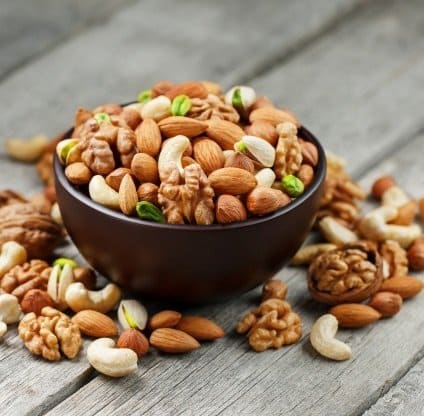
Nuts are another important group of foods that help lower bad cholesterol levels. Most nuts, including walnuts, almonds and peanuts, are good for lowering cholesterol. Nuts lower cholesterol levels due to their plant sterols and unsaturated fats, which protect blood vessels from damage. They are also high in fibre and vitamin E.
Another food that helps lower bad cholesterol is soy. Soy milk, nuts, tofu and soy yogurts can support the liver to easily eliminate the bad LDL cholesterol from the bloodstream. So, make sure to replace milk and meat with soy at least few times a week.
Consumption of olive oil and rapeseed oil, which contain mainly mono-unsaturated fatty acids and make the walls of the arteries stronger, which means they are less likely to be damaged by cholesterol, also helps lower bad cholesterol levels. In addition, these fats are easily eliminated by the body.
It is also recommended to enjoy oat flakes. Oat flakes contain a ingredient called beta glucan, which forms a dense substance in the digestive tract. This prevents cholesterol from being absorbed into the body, as it is trapped by beta glucan and excreted as waste material.
Spirulina against high cholesterol levels
Spirulina is an algae that has the power to regulate glucose, blood pressure and cholesterol levels. Relieves inflammatory pain, has antioxidant properties and protects against heart, liver and kidney diseases. In addition, it supports the immune system, reduces the side effects of allergies, improves digestion and speeds up brain function.
This green-blue algae is full of protein and vitamins. Spirulina is a planktonic filamentous cyanobacterium and a superfood, usually called green-blue algae because of its colour. Spirulina is grown in alkaline saline or fresh water. It contains many vitamins, such as A, B1, B2, B3, B6, B9, C, E… and it is characterized by a high protein content – 60 percent on average! Using X-ray fluorescence analysis, was discovered that spirulina contains many of the micronutrients our body needs.
Spirulina supplies the body with even more protein than nuts
Spirulina is a unique algae that helps us detoxify our body. It is an essential part of our super supplements, because it is the only algae that successfully detoxifies and at the same time strengthens our body. Spirulina is the first algae on earth which carries the evolution of the earth and humanity in its DNA. It is one of the first forms of life on Earth, as it was among the first to contribute to the formation and production of oxygen, which enabled the development of higher forms on Earth.
This blue-green algae is an amazing source of chlorophyll, natural salts, enzymes and antioxidants. It also contains iron, calcium and other minerals (also trace minerals). Its benefits are also confirmed by the World Health Organization (WHO). Interestingly, spirulina has a much higher iron content than spinach and contains much more beta carotene (vitamin A) than carrots.
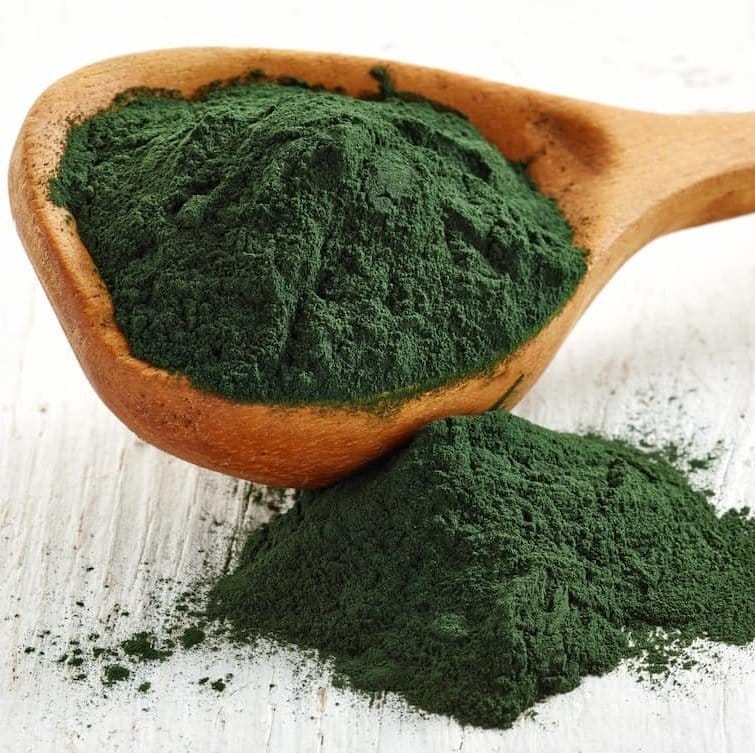
Spirulina helps boost health and lower cholesterol
Researches show that consuming spirulina helps lower the blood cholesterol levels and lowers blood pressure, thus reducing the chance of developing cardiovascular diseases. It prevents heart and heart valves damage, stimulates and strengthens the immune system, by stimulating the production of antibodies and creating a normal response to allergies. Spirulina helps with learning, concentration and memory.
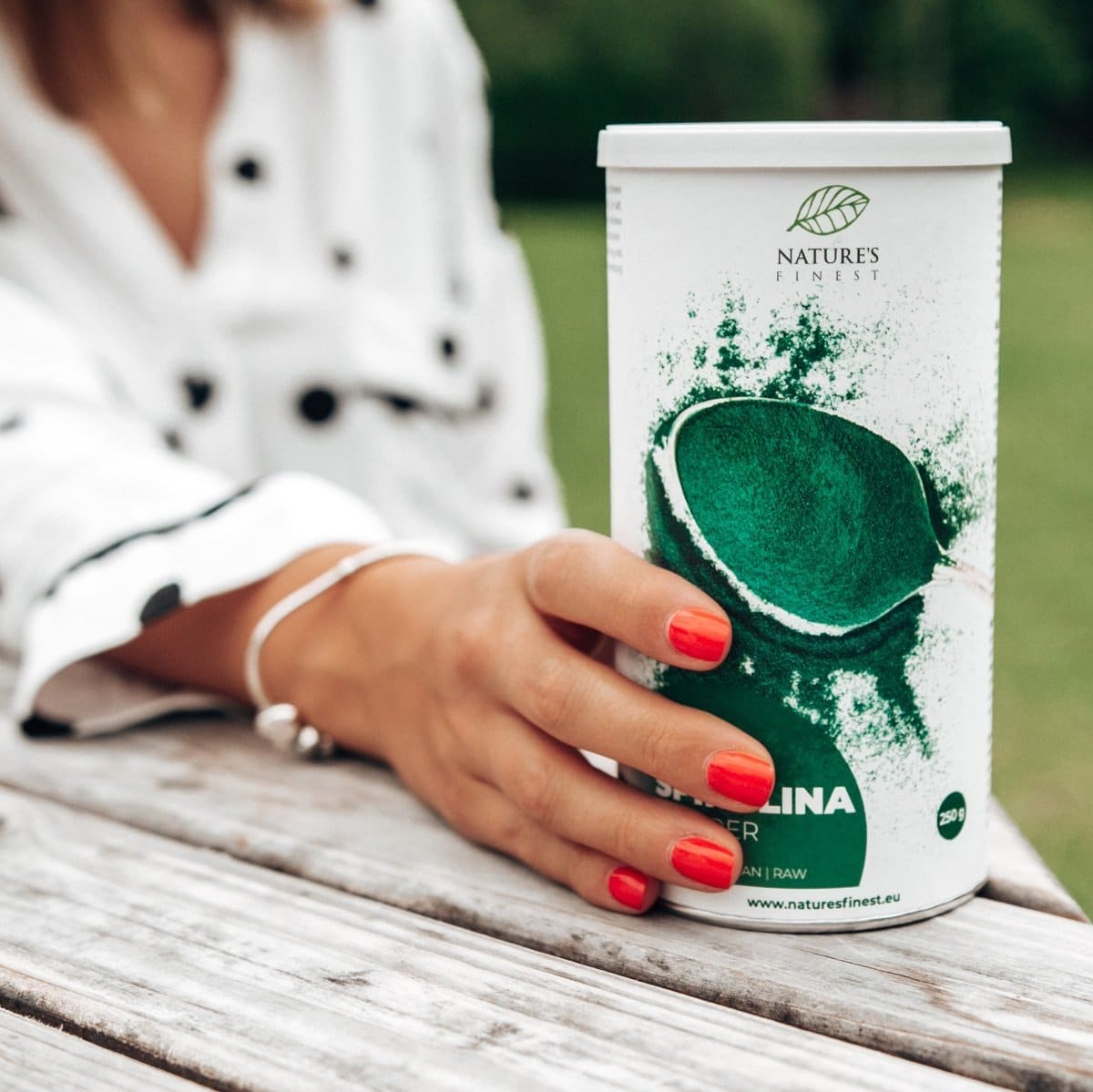
Who is it for?
It is intended for children who do not like vegetables or cannot eat enough because of unbalanced food intake, for teenagers in the period of growth and development when they need more super nutrients, for pregnant women who need an additional source of nutrients, for athletes and recreational athletes, who need extra nutrients to maintain energy. For patients or people who need better quality nutrients to speed up healing, for vegetarians and vegans who need extra nutrients.
Spirulina is not recommended only for those diagnosed with hyperparathyroidism (a disease caused by increased, uncontrolled production and secretion of parathyroid hormone (PTH) from the parathyroid glands), individuals who are allergic to algae and seafood, and patients who have a very high temperature.
Spirulina strengthens and detoxifies
Spirulina can be consumed if we want to detoxify or strengthen the body. It is the only algae that strengthens the body and detoxifies at the same time! It can be used in several different ways: spirulina powder can be added to a smoothie, sprinkled on fruit, mixed into yogurt, mixed with lemon juice…
Spirulina powder contains as much as 60 percent of protein and all 23 essential amino acids. Researches have shown that taking spirulina can have positive effects on blood sugar levels and cholesterol levels in people with Diabetes.
[blogproduct]
